un-plan_safety-of-journalists_banner_english_newsletter.jpg

As part of the information sharing mechanism under the UN Plan of Action on the Safety of Journalists and the Issue of Impunity, we are issuing this newsletter every two months. Through this newsletter, we share with you information on the implementation of the UN Plan of Action. It includes development from the first-phase countries (Iraq, Nepal, Pakistan, and South Sudan), various ongoing and upcoming initiatives that could contribute to achieving the objectives set out in the UN Plan of Action. We invite you to submit relevant information concerning your initiative that would contribute to the UN Plan.

Global call in Geneva to improve the safety of journalists on the ground
Action-oriented recommendations to improve the protection of journalists and reinforce the implementation of the UN Plan of Action on the Safety of Journalists and the Issue of Impunity were identified by more than 200 key stakeholders at a meeting organized by UNESCO and OHCHR in Geneva, Switzerland. One of the main challenges highlighted at the meeting was how to translate the normative framework into national and policies and local practices. The list of recommendations can be consulted here. Read more.

Measuring the safety of journalists examined at technical workshop in Geneva
UNESCO and the Office of the High Commissioner for Human Rights co-hosted a technical workshop on 28 June 2017 to delve deeper into process of measuring the levels of media safety worldwide. The workshop discussed ways to operationalise the safety-related indicator for progress on Sustainable Development Goal 16.10, which covers “the number of verified cases of killing, kidnapping, enforced disappearance, arbitrary detention and torture of journalists and associated media personnel” in the previous 12 months. Read more.
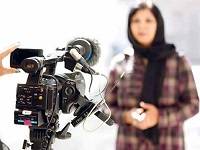
An attack on one is an attack on all
On 29 June 2017, UNESCO released its new publication An attack on one is an attack on all, that highlights the efforts made by stakeholders in the field to improve media safety. The report is a collection of stories and case studies, meant to inspire others and to raise awareness. It was launched on the occasion of the Multi-Stakeholder Consultation meeting on Strengthening the UN Plan of Action on the Safety of Journalists and the Issue of Impunity, which took place in Geneva, Switzerland. The report can be consulted here. Read more.

UNESCO triggers debate on privacy, encryption and source protection at WSIS Forum 2017
Digital attacks, source protection, and encryption are a few of the numerous challenges journalists are facing when carrying out their job online. During the World Summit of the Information Society (WSIS) Forum in Geneva (Switzerland), UNESCO convened a session on Strengthening privacy, encryption and source protection for media freedom and Internet development on 15 June 2017. The round table acted as a brainstorming session, where David Kaye, UN Special Rapporteur on Freedom of Expression, provided the keynote address. Read more.
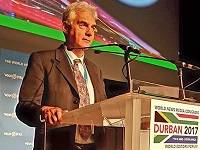
Recognising journalism as a world heritage under threat
Guy Berger, Director for Freedom of Expression and Media Development at UNESCO, made the case for journalism as heritage under threat at the WAN-IFRA congress in Durban, South Africa on 9 June 2017. The ever-increasing flood of fake(d) news is affecting the trustworthiness of professional journalism. In addition, the economic struggles of media houses and harassment of media professionals put fact-based journalism at peril. “To lose journalism will mean that we find ourselves lost,” stated Berger. Consult his full address here. Read more.

UN Secretary-General establishes direct communications channel on safety of journalists
UN Secretary-General António Guterres has taken further measures towards strengthening the United Nations' commitment to safety of journalists worldwide. A direct communications channel between the head office of the UN and a coalition of press freedom advocates was set up where information on cases of killed journalists will be exchanged. This new channel is one of the outcomes of the February 2017 meeting between Guterres and representatives of press freedom organisations. Read more.

Press freedom in a conflict-ridden country
South Sudan is one of the last countries to become a Member State of UNESCO after it achieved independence in 2011. As one of the first countries to actively implement the UN Plan of Action on the Safety of Journalists and the Issue of Impunity, it prioritized the development of media and promotion of press freedom. In an interview with the Norwegian Refugee Council (NRC), Mwatile Ndinoshiho describes her experiences as an NRC secondee to UNESCO in South Sudan and her work in ensuring media can operate safely and independently. Read more.

Launch of J-Pro Wiki project by FLIP
In June 2017, the Colombian press freedom organisation FLIP (Fundación para la libertad de prensa) launched the J-Pro Wiki, an online platform which collects information on safety of journalists initiatives around the world. With the understanding that local efforts contribute to global solutions, the digital knowledge-gathering project aims to assist all stakeholders as an up-to-date repository on any safety related mechanism. The explanatory video of the project can be viewed here. The project itself is accessible here.
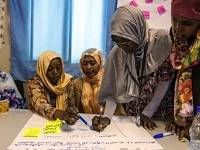
Two safety training sessions for women journalists held in Sudan
During the month of May, two safety training sessions were held in Sudan aimed specifically at women reporters. In the city of El Fasher in the Darfur region of West Sudan, 23 female journalists attended a three-day training session from 14 to 16 May. One week later, from 23 to 25 May 2017, a similar training session was held in El Damer, eastern Sudan, that was attended by 20 women media professionals. Safety trainings such as these have been implemented since February, and will continue throughout the coming year.
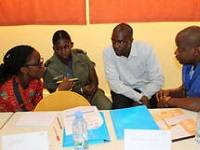
Gambian security forces trained on freedom of expression and safety of journalists
Local security forces attended two three-day trainings on media safety and freedom of expression in Banjul, the Gambia from 5 to 10 June 2017. The training aimed to improve the capacities of law enforcement officers to guarantee the fundamental right to freedom of expression. It was organized by the West Africa Regional Office of the press freedom NGO ARTICLE 19, with support from UNESCO and the European Union. The latter has been implementing a larger governance project within the West-African country, which includes a media focus. Read more.

Training of journalists in Liberia on conflict-sensitive reporting
In view of the upcoming 2017 elections in Liberia, UNESCO Abuja Office trained 35 young journalists on the importance of safety and conflict-sensitive reporting from 13 to 14 June. Under the banner Empowering young journalists to monitor good governance, democratic participation and peaceful transition in Liberia, UNESCO partnered with CEMESP (Centre for Media Studies and Peace Building) to provide insight on election monitoring and the role of the media in promoting democratic participation and non-violent transition.

Debate on the role of security forces in ensuring freedom of expression and safety of journalists in Mali
On the occasion of World Press Freedom Day 2017 (3 May), a debate was organized between journalists and members of the security forces at the police school in Bamako, Mali. Focusing on the role of law enforcement in upholding the fundamental freedoms of expression and information, the debate was a culmination of three previous safety trainings. A hip hop debate video was also produced that addressed common misunderstandings between the two professions, with concrete suggestions for reinforced cooperation. Read more. (in French)

Facebook launches Journalist Safety Initiative
As one of the largest networks where news is both collected and shared extensively, Facebook has become an active partner in journalism safety. The social media company launched on 23 June its Safety for Journalists project, which provides concrete information, courses and recommendations on navigating the platform in a safe manner for media professionals. For this project, Facebook has partnered with five press freedom organisations, including the Committee to Protect Journalists and the European Journalism Centre. Read more.

Morocco co-signs Declaration on Media Freedom in the Arab World
On 30 May 2017, Morocco joined Jordan, Sudan, Palestine, and Tunisia as the fifth country to sign the Declaration on Media Freedom in the Arab World. The Declaration sets out 16 key principles towards an enabling, independent and safe media environment within the Arab States. The International Federation of Journalists (IFJ) has been campaigning for its ratification since May 2016, when it was first adopted by the Moroccan Journalists' Union and IFJ in Casablanca, Morocco. Read more.

German parliament endorses the creation of a Special Representative on Media Safety at the UN
As the first country to do so, Germany has officially endorsed the initiative of Reporters Without Borders and other press freedom organisations to create a Special Representative on the Safety of Journalists. On 23 June 2017, German lawmakers called on their government "support a UN initiative on the safety of journalists and against impunity, and to promote the establishment of Special Representative to oversee compliance by UN members states with their international legal obligations to provide security for journalists". Read more.

Colombian justice considers combating impunity a priority
Colombian Attorney General Néstor Humberto Martínez Neira made a clear commitment to ending impunity in an interview conducted in May 2017 with NGO International Federation of Journalists (IFJ) and the Colombian Federation of Journalists (Fecolper). "Colombian justice will give priority to the fight against impunity, which continues to benefit the murderers of journalists," he stated. Impunity is widely considered as the greatest obstacle in ensuring freedom of expression and a safe media environment. Read more.
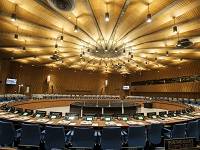
UNESCO's Executive Board underlines the importance of journalists' safety
On 28 April 2017, the 201st session of UNESCO's Executive Board adopted a new Resolution on the Safety of Journalists and the Issue of Impunity. It appeals to all stakeholders to redouble their efforts in ensuring that media safety is strengthened and impunity for crimes against journalists is rolled back. Sponsored by more than 60 Member States from all regional groups, the Decision also urged Member States to continue responding to the UNESCO Director-General's annual requests on the status of cases of killed journalists. Read more.

Regional forum on safety of journalists to be held end of July in Honduras
UNESCO and the Federation of University Faculties of Public Communication in Latin America (FELAFACS) will be organizing a forum to examine how the journalism curricula in Central America could be improved to address issues related to safety of journalists as well as better prepare aspiring journalism students to manage the security challenges they could face in the region. The forum is set to take place from 27 to 29 July in the capital of Honduras, Tegucigalpa. More information will be made available soon.

Open dialogue between journalists and security forces
From 18 to 20 September 2017, UNESCO Ramallah Office is organizing a training for security forces to better understand the role and function of journalists in democratic societies. The training will also highlight the importance of media safety. Fostering a dialogue between media and law enforcement has been proven successful in the last two years, creating an environment of exchange so each stakeholder can understand the other's role. It will be the first time such a training will take place in Palestine.

Conference on safety of journalists in times of conflict to be organized in Oslo, Norway
The research group Media, War and Conflict of the Oslo and Akershus University College will organize a research conference in concurrence with International Day to End Impunity for Crimes against Journalists from 2 to 3 November 2017 in the capital of Norway, Oslo. The main theme will focus on the safety of media professionals who cover violent conflict and war. Practical and theoretical perspectives will be examined, as well as possible strategies and solutions towards this complex issue. Read more.
